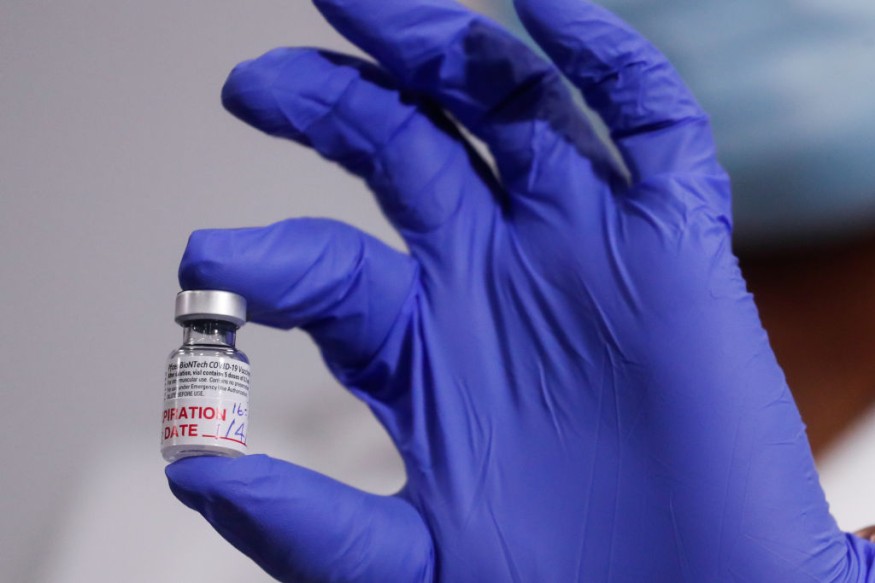COVID-19 vaccines are being rolled out throughout the United States. They're now being phased out mostly to health care staff and residents at long-term care institutions, as well as high-risk patients and people over the age of 65.

Still, having a vaccine is on everyone's mind, so it's natural to have concerns about the procedure, including what to expect if you get the vaccine in the future. CNN and the Centers for Disease Control and Prevention (CDC) provided recommendations about the how-tos of the vaccine process. If you want to be ready for what's to come, here's what you need to do.
DO: Get your vaccine when it's your turn
Through contacting the state or local health agency, you should be able to find out when it's your time to be vaccinated and how to register in your area. Check here for updates on vaccine registrations that are currently available in your state.
DO: Get Vaccinated If You've Already Had COVID-19 Before
The CDC warns that reinfection with COVID-19 is a distinct possibility, so all, including those who have already become sick, can get vaccinated against the virus.
Whether you were treated with monoclonal antibodies or convalescent plasma when sick with COVID-19, the CDC recommends waiting 90 days before getting the vaccine. Before getting the shot, see the doctor.
DO: Inform Vaccination Providers Of Any Allergies Or Previous Allergic Reactions
While it's uncommon, a few individuals have had moderate-to-severe allergic reactions since receiving the Moderna and Pfizer mRNA vaccines, so make sure to alert the nurse at the vaccination site if you've had any previous allergic reactions.
If you have a history of acute or severe allergic reactions to vaccines or other injections, Dr. Saju Mathew, an Atlanta-based primary care physician, and public health expert, suggests keeping an EpiPen on hand.
DO: Have Your Second Vaccine Shot As Soon As Possible After The First
Vaccine scientist Dr. Peter Hotez, professor, and dean at the National School of Tropical Medicine at Baylor College of Medicine in Houston, told CNN that a second shot of the vaccine is needed to ensure that you are protected.
The main goal of the second dose, according to Hotez, is to get everybody to act. "If you just get a single dose, you don't know where you stand."
The CDC recommends giving the Pfizer-BioNTech doses 21 days apart, while the second Moderna dose is given 28 days after the first. If you have trouble arranging the second injection, the CDC says that waiting a few days after the due date - and even longer - for any vaccination should not be a problem.
DO: Keep Wearing Masks And Practicing Social Distancing After The Shots
Since receiving the first and second doses of vaccine, the CDC recommends that you continue to wear your masks and exercise effective social distancing. The immune reaction to the first dose would be insufficient to shield you or anyone. Depending on the vaccine, the second dose can have about 95 percent safety one or two weeks after administration.
Continue to wear a mask over your nose and mouth, keep at least 6 feet away from others, avoid crowds and cramped, badly ventilated areas, and wash your hands often for at least 20 full seconds to protect others.
DON'T: Allow Vaccine Misinformation To Cloud Your Decision
Disinformation about COVID-19 and the vaccines available abounds on social media.
If you're unsure about the vaccination, educate yourself - the US Centers for Disease Control and Prevention is only one of many reputable organizations that will provide you with vetted, science-based information on the virus and accessible vaccinations.
DON'T: Take A Shot Whether You Currently Have COVID-19 Or Have Been Subjected To It
Dr. Michael Ison, a professor in the division of infectious diseases and organ transplantation at Northwestern University's Feinberg School of Medicine, told CNN that if you have been positive for COVID-19 or been exposed to someone who has the infection at the moment, you can wait until your symptoms and isolation time have ended before going to the injection site to get your shot.
DON'T: Get A Different Vaccine Within 14 Days Of Receiving The COVID-19 Injection
The CDC recommends waiting at least 14 days until or after receiving another injection, such as the flu or shingles dose, before getting a COVID-19 shot.
If you had another vaccine accidentally during the two-week span, you could still finish the COVID-19 series on time. The CDC says it will amend this advice as more research about how vaccines work becomes available.
DON'T: Leave Until The 15- To 30-Minute Wait Time On The Vaccination Site
According to the CDC, everyone who receives a coronavirus vaccine must wait 15 minutes in their car before driving away. If you've had a history of serious allergic reactions, you'll have to wait 30 minutes in your car before driving again. Experts agree that these are mild inconveniences relative to the risks of experiencing dizziness or worse while traveling.
The CDC recommends calling 911 if you have a critical reaction after leaving the vaccine site. Both reactions should be registered to V-safe, a mobile app, or the Vaccine Adverse Event Reporting System (VAERS).
Soreness and swelling at the injection site are common vaccine side effects. People can experience COVID-like symptoms such as fever, nausea, headache, and chills after receiving the second shot.
RELATED ARTICLE : Volunteer for Pfizer's Experimental COVID-19 Vaccine Shares Side Effects from Trial
Check out more news and information on COVID-19 on Science Times.
© 2026 ScienceTimes.com All rights reserved. Do not reproduce without permission. The window to the world of Science Times.












